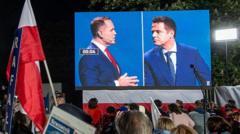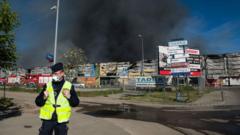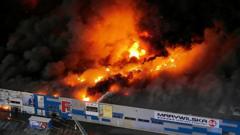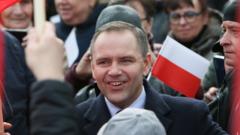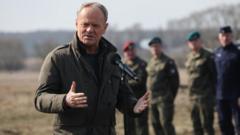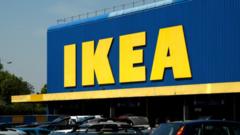In a closely watched election, Warsaw's liberal mayor Rafal Trzaskowski emerged with a narrow lead in the Polish presidential race, according to preliminary exit polls released late on Sunday. Trzaskowski, who belongs to the centrist Civic Platform (PO) party led by Prime Minister Donald Tusk, secured around 30.8% of the vote, while his conservative opponent, historian Karol Nawrocki, garnered 29.1%. Due to the lack of a clear winner—none of the 13 candidates achieved the necessary majority—the two will face off in a run-off scheduled for June 1.
Tight Presidential Race in Poland: Trzaskowski Ahead But Run-Off Looms
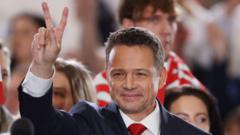
Tight Presidential Race in Poland: Trzaskowski Ahead But Run-Off Looms
Warsaw Mayor Rafal Trzaskowski leads a tightly contested Polish presidential election, but a crucial second round is required.
During a rally in Sandomierz, Trzaskowski expressed optimism about his prospects, stating, "We're going to win," and acknowledged the hard work ahead. He emphasized his commitment to working alongside Tusk's coalition to push for liberal reforms in Poland, including changes to the country's strict abortion laws and the overhaul of a judiciary perceived to have become politicized under the outgoing PiS administration. In the lead-up to the election, Trzaskowski's performance was disappointing compared to pre-vote predictions, which had placed him ahead of Nawrocki by approximately 4% to 6%.
The presidency in Poland, while largely ceremonial, holds significant power with the ability to veto legislation, a tactic frequently utilized by the current conservative president, Andrzej Duda. Tusk's coalition lacks a parliamentary majority to override such vetoes; should Trzaskowski win the presidency, he would likely be able to dismantle this barrier, but Nawrocki may prove to be an even greater challenge.
In his address to supporters in Gdansk, Nawrocki urged his backers to unite against Tusk's aspirations for absolute power in Poland, appealing to fans of far-right candidates Slawomir Mentzen and Grzegorz Braun. Mentzen's party continues to gain traction, further complicating the electoral landscape and casting uncertainty on how his supporters will vote in the upcoming run-off, particularly given his anti-establishment appeal and diverging viewpoints from the traditional parties.
As voters anticipate the second round, the uncertainty surrounding both candidates underscores the importance of mobilizing their respective bases—Trzaskowski must attract not only his centrist party's supporters but also those from coalition partners, while Nawrocki will leverage his party’s historical strengths in voter mobilization.
With Poland standing at a political intersection, the stakes for the upcoming election are higher than ever, presenting vital implications for the future of governance in the nation.
The presidency in Poland, while largely ceremonial, holds significant power with the ability to veto legislation, a tactic frequently utilized by the current conservative president, Andrzej Duda. Tusk's coalition lacks a parliamentary majority to override such vetoes; should Trzaskowski win the presidency, he would likely be able to dismantle this barrier, but Nawrocki may prove to be an even greater challenge.
In his address to supporters in Gdansk, Nawrocki urged his backers to unite against Tusk's aspirations for absolute power in Poland, appealing to fans of far-right candidates Slawomir Mentzen and Grzegorz Braun. Mentzen's party continues to gain traction, further complicating the electoral landscape and casting uncertainty on how his supporters will vote in the upcoming run-off, particularly given his anti-establishment appeal and diverging viewpoints from the traditional parties.
As voters anticipate the second round, the uncertainty surrounding both candidates underscores the importance of mobilizing their respective bases—Trzaskowski must attract not only his centrist party's supporters but also those from coalition partners, while Nawrocki will leverage his party’s historical strengths in voter mobilization.
With Poland standing at a political intersection, the stakes for the upcoming election are higher than ever, presenting vital implications for the future of governance in the nation.


